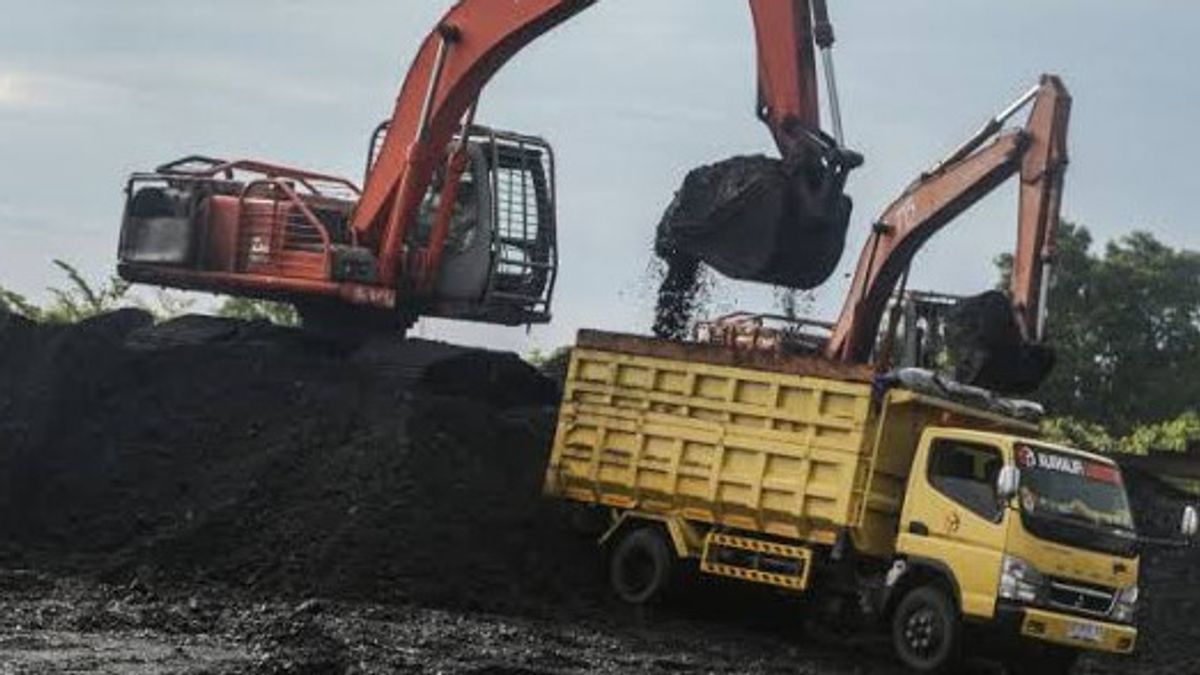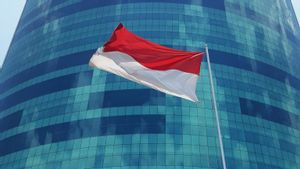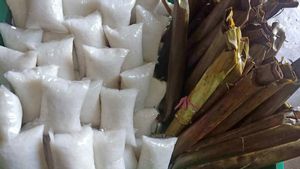JAKARTA - The decision of PT Bank Rakyat Indonesia (Persero) Tbk (BRI) to stop financing to the fossil energy sector such as coal and oil has received appreciation from environmental activists.
President Director of PT Bank Rakyat Indonesia (Persero) Tbk, Sunarso, was also urged to follow up by immediately stopping ongoing fossil energy projects such as PLTU Jawa 9 and 19 and refinancing Adaro.
Coordinator of the Association for Ecological Action and People's Emancipation (AEER), Pius Ginting said that the decision from Bank BRI helps reduce the rate of climate change and minimizes the potential for crop failure so that it will save farmers from the threat of failing to pay the People's Business Credit (KUR).
"Meanwhile, Bank BRI is currently aggressively channeling credit to the agricultural sector. In 2021, PT Bank Rakyat Indonesia (Persero) Tbk is recorded to control 28.3 percent of the market share (market share) in lending to the agricultural sector from the entire national banking industry," Pius said in his statement, quoted on Friday, June 3.
According to Pius, farmers are the most vulnerable group affected by climate change. Extreme climatic events will cause crop and planting failures, which will lead to decreased productivity and production due to floods and droughts, increased air temperature, and the intensity of pest attacks.
When farmers experience crop failure, they experience large losses and disrupt their financial condition and potentially cannot pay off the People's Business Credit (KUR) provided by Bank BRI.
In fact, KUR aims to strengthen the working capital of farmers and make farmers' lives prosperous.
Meanwhile, a researcher from Trend Asia, Andri Prasetiyo, also said the same thing. He said, the commitment of Bank BRI conveyed by the President Director to stop funding for coal and oil was the right step and should have been done.
This next step must not stop only in the form of verbal statements in international forums, but must immediately be stated in writing in the documents and terms of reference for the company's financing in the future.
If they do not immediately follow this step, banks that still choose to fund dirty energy will have a bad reputation due to negative sentiment from customers and the public because they are considered insensitive to environmental issues.
The steps taken by Bank BRI going forward, said Andri, will not only have a positive impact on the environment, because in business for the company, by immediately stopping funding coal sources, the opportunity to develop green business funding will be wider and the company will also avoid the risk of stranding. assets.
“BRI is recorded as taking part in a syndicated loan for the Java 9-10 PLTU Mega Project which will cost up to 40 trillion rupiah with a capacity of 2,000 MW. PLTU Jawa 9-10 is currently in the initial development stage, if BRI is serious about its commitment, BRI can also start by withdrawing its involvement from this project," said Andri.
WALHI's Mining and Energy Campaign Manager, Fanny Tri Jamboree, said that funding for extractive industries, including coal and oil, had so far caused widespread damage, resulting in a decline in environmental quality and loss of livelihoods for local communities, and triggered the climate crisis.
Fanny said that more than half of the country's land area had been taken over by the extractive industry sector. At least the mining sector permits continue to push until they control at least 97.7 million hectares of area in Indonesia.
"The concentration of profits in a few hands through the fossil energy industry is contrary to efforts to overcome the pace of the climate crisis," said Fanny.
Bank BRI's move should also be a signal to the Financial Services Authority and other funding sectors to improve the vision and direction of funding policies in Indonesia.
The fossil energy sector should no longer have a place in the green taxonomy, and it should no longer be easier to get funding support. Existing financial institutions must now take on a role in mitigating climate change through financing to sectors of the regenerative and sustainable economy, before being abandoned by customers and investors who care about this planet.
BRI's President Director, Sunarso, at the World Economic Forum conference, Davos, Switzerland, said that the company's loan portfolio to the fossil energy sector, especially coal, which currently only accounts for less than 3 percent of BRI's total credit, will certainly not increase.
This statement was made by Sunarso when asked about the possibility of BRI being involved in financing fossil energy which was later tried to be pushed back following the global energy crisis due to the pandemic and the Russo-Ukrainian war.
The initiative to limit funding to the coal mining sector has actually been stated by the company's management in the 2020 annual report. It is said that BRI will no longer provide credit financing to businesses that damage the environment and is committed to implementing sustainable finance practices that are integrated with ESG (Environment, Social, and governance).
BRI's policy to limit credit disbursement in the coal sector also received public support. The Clean Indonesia Movement initiated a petition asking BRI to stop financing the coal sector. The petition on the Change.org page has been signed by more than 13,561 people.
The English, Chinese, Japanese, Arabic, and French versions are automatically generated by the AI. So there may still be inaccuracies in translating, please always see Indonesian as our main language. (system supported by DigitalSiber.id)








